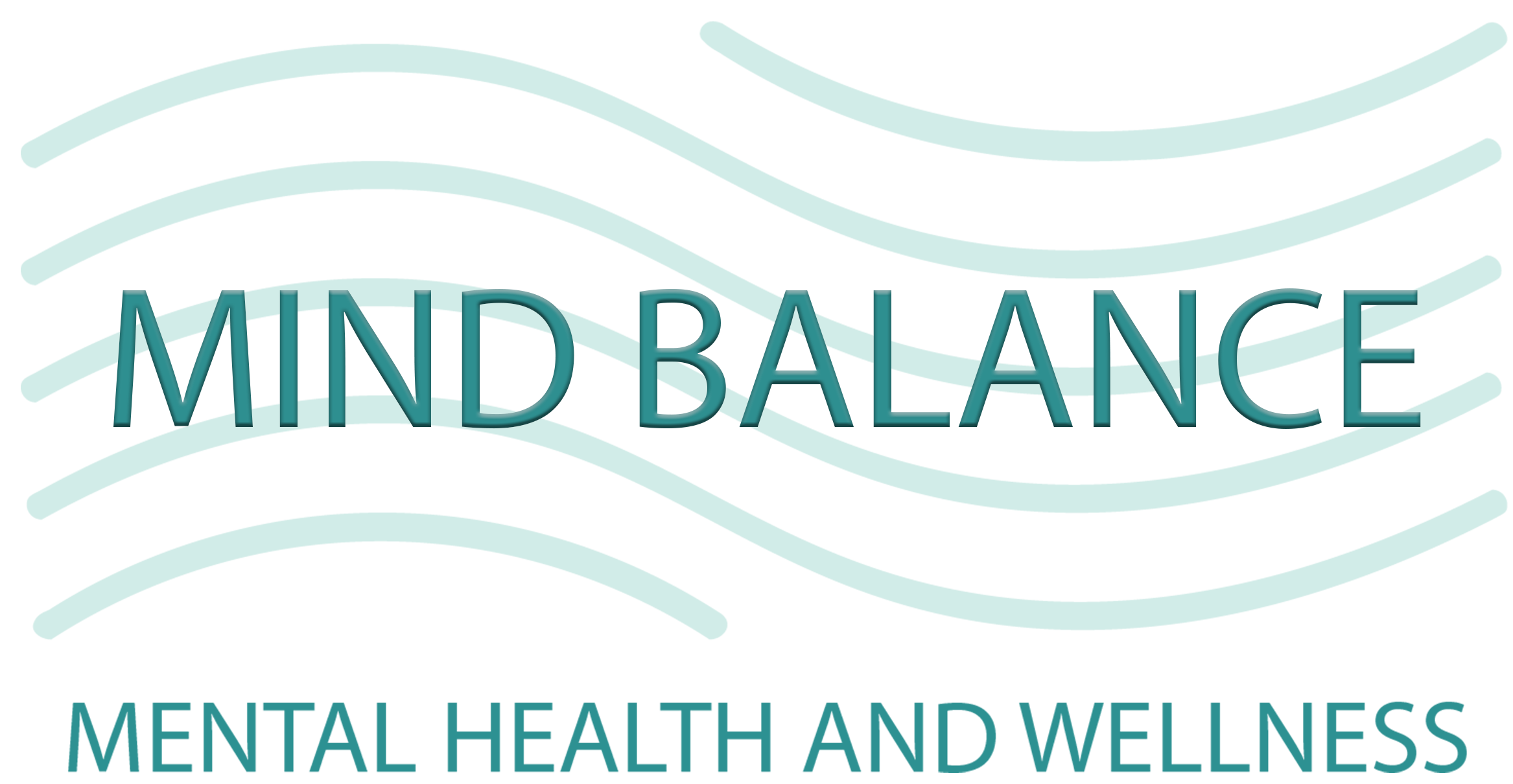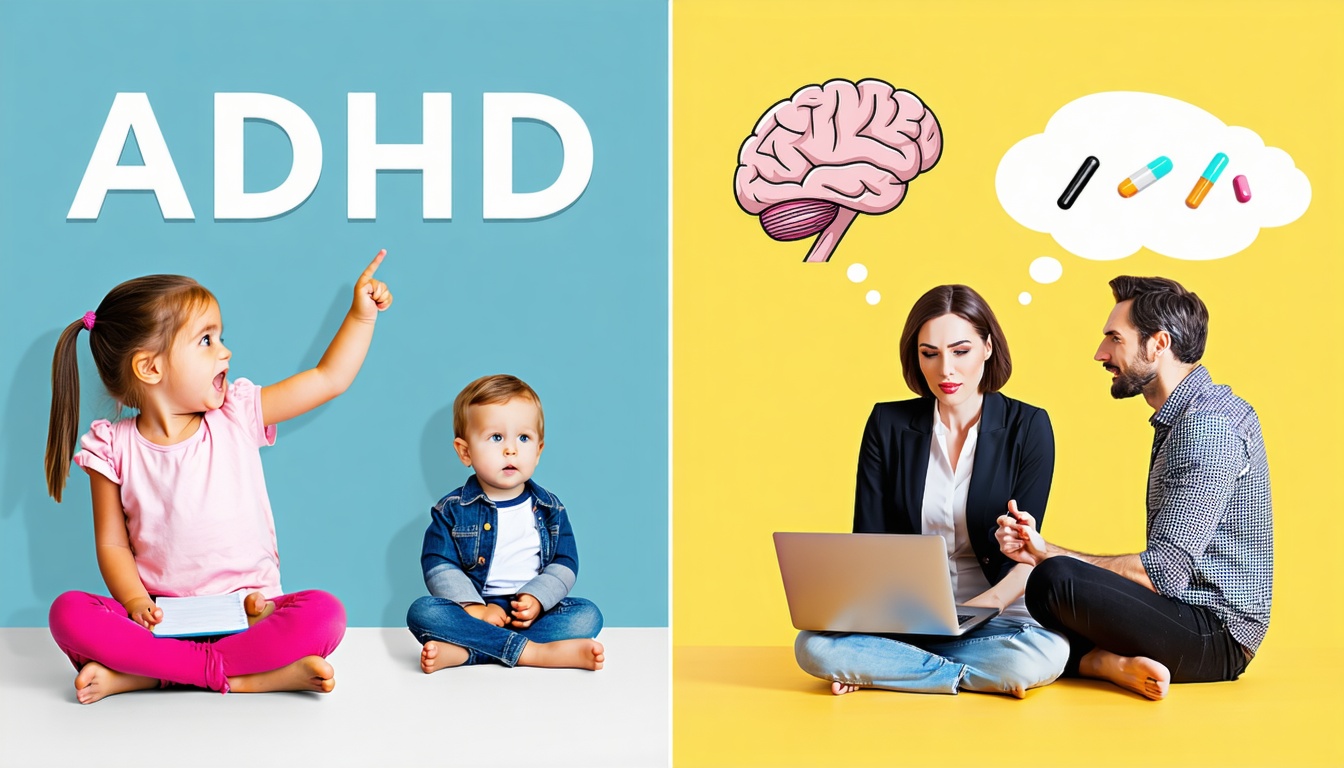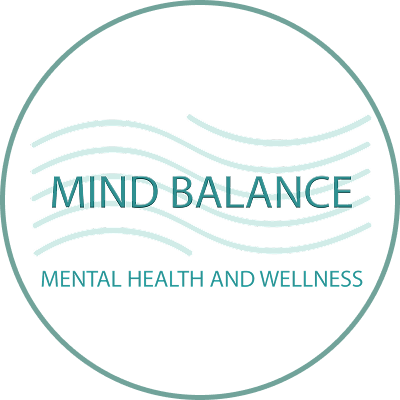OCD Treatment at a Mental Health Clinic
At Mind Balance Health and Wellness, we understand that those seeking guidance on what to expect from OCD treatment at a mental health clinic need comprehensive support. Our treatment plans typically involve a combination of psychotherapy and medication, specifically cognitive behavioral therapy (CBT) and antidepressants, aimed at controlling OCD symptoms so they do not interfere with daily life.
Psychotherapy and Medications
Psychotherapy is a cornerstone in the treatment of OCD. It enables individuals to explore their thoughts and behaviors while learning effective coping mechanisms. Medications complement this therapy, providing a holistic approach to treatment.
| Treatment Type | Description |
|---|---|
| Psychotherapy | Involves discussing issues and feelings with a therapist to develop strategies for managing symptoms. Little to no side effects. |
| Medications | Includes the use of antidepressants, which help control obsessions and compulsions. FDA-approved options include fluoxetine, fluvoxamine, paroxetine, and sertraline. |
For more detailed insights into medications, visit our page on managing medications.
Cognitive Behavioral Therapy (CBT)
Cognitive Behavioral Therapy (CBT) is an effective treatment strategy tailored for those with OCD. Specifically, the Exposure and Response Prevention (ERP) component of CBT involves gradually introducing individuals to feared situations or objects, coupled with learning to resist the associated compulsive behaviors. This method can seem challenging, but it significantly improves the quality of life by helping manage obsessions and compulsions (Mayo Clinic).
| CBT Component | Focus Area | Benefits |
|---|---|---|
| Exposure | Gradually facing fears | Reduces anxiety over time |
| Response Prevention | Learning to delay or resist compulsions | Decreases ritualistic behaviors |
CBT sessions are designed not only to reduce symptoms but also to empower individuals in understanding and managing their disorder.
Antidepressant Therapy
Antidepressant therapy is integral for many seeking relief from the oppressive grips of OCD. The FDA has approved several antidepressants specifically for treating OCD, including fluoxetine, fluvoxamine, paroxetine, and sertraline. Our experienced team takes the time to assess each individual’s situation, determining the most appropriate medication based on their unique circumstances (Mayo Clinic).
| Antidepressant | Use in OCD Treatment | Notes |
|---|---|---|
| Fluoxetine | Commonly prescribed | Part of the SSRIs family |
| Fluvoxamine | Effective for managing symptoms | May reduce anxiety levels |
| Paroxetine | Often used when starting treatment | Might have side effects |
| Sertraline | Well-tolerated with manageable side effects | Common first-line treatment |
By working closely with our healthcare professionals, individuals can find the proper balance of therapy and medication to enhance their treatment experience.
At Mind Balance Health and Wellness, we strive to ensure that our clients receive the highest quality mental health care tailored to their needs. For additional insights on related topics, explore our articles on understanding the complex symptoms of OCD and identifying PTSD in adults after childhood trauma.
Alternative Treatments for OCD
In our commitment to providing the highest quality mental health care, we recognize that some individuals may not find relief through traditional methods such as psychotherapy and medications. For these cases, we explore alternative treatment options like Deep Brain Stimulation (DBS) and Transcranial Magnetic Stimulation (TMS). These approaches can serve as effective solutions for treatment-resistant Obsessive-Compulsive Disorder (OCD).
Deep Brain Stimulation (DBS)
Deep Brain Stimulation (DBS) involves the implantation of electrodes in specific areas of the brain, which are then connected to a pulse generator. This device sends electrical impulses to help regulate abnormal brain activity associated with OCD. While DBS is not the first line of treatment, it has shown promise in individuals with severe OCD symptoms that have not responded to other therapies.
Considerations for DBS:
- Typically recommended for severe, treatment-resistant OCD
- Requires careful assessment by a specialist
- Potential risks and benefits must be thoroughly discussed with our team
For those interested in learning more about symptoms of OCD, we encourage you to read our article on understanding the complex symptoms of ocd.
Transcranial Magnetic Stimulation (TMS)
Transcranial Magnetic Stimulation (TMS) is a non-invasive procedure that uses magnetic fields to stimulate nerve cells in the brain. TMS is often used for patients who have not had success with traditional OCD treatments. This technique has been well-studied and has shown to reduce OCD symptoms in many individuals when combined with other therapeutic approaches.
Key Points About TMS:
- Outpatient procedure, typically done in a series of sessions
- Minimal side effects compared to other treatments
- Effective for patients with a history of treatment resistance
Evidence supports the use of TMS as a complementary option for OCD, especially for those who may benefit from a neuromodulation technique. For more information on medication and therapy approaches for various mental health conditions, consider visiting our article on managing bipolar disorder: medication and therapy approaches.
Both DBS and TMS should be tailored to individual needs. During treatment planning, we discuss the pros, cons, and potential health risks associated with these alternatives. If you or a loved one are exploring these treatment options, we are here to guide you every step of the way.
Complementing OCD Treatment
In supporting our treatment for obsessive-compulsive disorder (OCD), utilizing effective coping strategies and seeking support can significantly enhance the overall experience. At Mind Balance Health and Wellness, we emphasize the importance of these elements in achieving the best outcomes for our clients.
Coping Strategies
Implementing practical coping strategies can help individuals manage their OCD symptoms alongside formal treatment. Here are some effective techniques that can be incorporated:
| Coping Strategy | Description |
|---|---|
| Mindfulness and Meditation | Engaging in mindfulness practices can help ground individuals in the present moment, reducing feelings of anxiety associated with intrusive thoughts. |
| Structured Routine | Establishing a daily routine can provide predictability and control, which may alleviate some symptoms of OCD. |
| Journaling | Writing down thoughts and feelings can be an excellent outlet for emotional expression and reflection. This can clarify obsessive thoughts and reduce their intensity. |
| Exercise | Physical activity is a natural anxiety reducer and can help improve mood and overall well-being. |
| Breathing Techniques | Techniques such as deep breathing can help manage anxiety during challenging moments, making it easier to confront compulsive urges. |
These coping strategies can complement professional treatment, which may include psychotherapy and medications. It’s important to note that while these strategies can be helpful, OCD is a chronic condition that often requires ongoing professional care to manage symptoms effectively (Mayo Clinic).
Seeking Support
Having a support network during OCD treatment is crucial. Connecting with peers through support groups can provide encouragement and understanding, making a substantial difference in managing the disorder (International OCD Foundation). Family and friends can also play an essential role in supporting individuals during their treatment journey.
When preparing for therapy or a doctor’s appointment related to OCD, we encourage individuals to consider their needs and treatment goals. Bringing a list of questions can facilitate a productive discussion with healthcare providers and help clarify any concerns (Mayo Clinic).
While OCD treatment may not lead to a complete cure, effective management can bring symptoms under control, allowing individuals to regain a sense of normalcy in their daily lives (Mayo Clinic). By focusing on complementary coping strategies and actively seeking support, we can create a collaborative approach to mental health that empowers individuals on their path to recovery.
Duration of OCD Treatment
Understanding the duration of OCD treatment is essential for setting realistic expectations for ourselves and our loved ones. The timelines can vary depending on various factors, including the specific treatment methods used and individual circumstances.
Timeframes for Effective Results
Achieving noticeable improvement in OCD treatment typically takes anywhere from six months to two years. This duration can vary based on the complexity of the condition. Some individuals may have deeply rooted obsessions and compulsions, which could extend the timeframe even further.
Cognitive Behavioral Therapy (CBT), particularly Exposure and Response Prevention (ERP), is the preferred treatment for OCD. ERP therapy often requires about two to three months of treatment to see clinically significant results. For those undergoing CBT, the standard duration usually spans between six months to two years (Interborough).
| Treatment Type | Average Duration |
|---|---|
| Cognitive Behavioral Therapy (CBT) | 6 months to 2 years |
| Exposure and Response Prevention (ERP) | 2 to 3 months for significant results |
| Follow-up Sessions | Ongoing, often spaced out after initial treatment |
It is important to note that even after reaching remission, follow-up sessions may be recommended at spaced intervals to reinforce progress and prevent relapse. About 70% of individuals benefit from ERP and/or medication (International OCD Foundation).
Factors Influencing Treatment Length
Several factors can influence the overall length of OCD treatment:
- Symptom Severity: More severe symptoms often require a longer treatment period for effective management.
- Individual Motivation: High levels of personal motivation can lead to quicker progress in treatment.
- Social Support: A strong support system can positively affect treatment efficacy and duration.
- Overall Health: Coexisting mental health issues or physical health conditions may complicate the treatment process.
- Compliance with Treatment: Regular attendance at therapy sessions and adherence to prescribed medications significantly impact progress.
By understanding these factors, we can better navigate the complexities of OCD treatment and identify the specific areas where support or adjustments may be necessary. For those looking to complement their treatment plan, exploring additional resources on managing OCD is advisable, including insights on understanding the complex symptoms of OCD and other coping strategies.
Intensive Treatment Options
At Mind Balance Health and Wellness, we recognize that individuals suffering from severe obsessive-compulsive disorder (OCD) may require more comprehensive care than traditional outpatient options can provide. Intensive treatment programs, including residential programs, partial hospitalization, and intensive outpatient programs, offer tailored support to address the unique needs of our clients.
Residential Programs
Residential programs provide a structured environment where individuals can focus entirely on their recovery. Participants reside at the treatment facility, ensuring that they have access to round-the-clock support from mental health professionals. This type of program is ideal for those with severe OCD who may need intensive care before engaging in exposure and response prevention (ERP) therapy.
| Features | Benefits |
|---|---|
| 24/7 support | Continuous access to therapists and support staff. |
| Structured environment | Reduces triggers and stressors from daily life. |
| Comprehensive care | Integrates therapy, medication management, and lifestyle adjustments. |
Partial Hospitalization
Partial hospitalization programs (PHPs) offer a high level of care without requiring full-time residency. Participants attend programs during the day and return home in the evening. PHPs are designed for individuals who need intensive treatment but can benefit from the stability of their home environment. This option is suitable for clients who require a step-down from residential programs or those who need elevated care before beginning ERP.
| Features | Benefits |
|---|---|
| Daytime treatment | Allows participants to receive therapy while maintaining some daily responsibilities. |
| Flexible scheduling | Provides a balance between intensive support and personal life. |
| Group therapy | Encourages peer support and shared experiences. |
Intensive Outpatient Programs
Intensive outpatient programs (IOPs) offer flexible treatment options that allow participants to engage in therapy several times a week while managing their daily responsibilities. This setup is particularly beneficial for those who have benefited from outpatient ERP but have not achieved the desired results. Additionally, clients might choose IOPs for access to specialized therapies and group support without requiring daily commitment.
| Features | Benefits |
|---|---|
| Sessions several times per week | High-frequency therapy can accelerate progress. |
| Focus on life skills | Equips clients with tools to manage OCD in daily scenarios. |
| Ongoing support | Continuous assessment and adjustment of treatment plans. |
As we work together on your journey towards wellness, understanding the various intensive treatment options ensures that you or your loved one receive the tailored care necessary for effective recovery. Each program is designed to meet the unique challenges presented by OCD, allowing individuals to regain control of their lives. For a deeper understanding of OCD and its treatment, refer to our articles on understanding the complex symptoms of OCD and managing bipolar disorder: medication and therapy approaches.
Enhancing OCD Treatment Experience
To ensure the most effective and enriching OCD treatment, we must focus on several key areas that enhance the overall experience for both the individual undergoing treatment and their support system.
Support and Coping Mechanisms
A strong support network is vital during OCD treatment. Having friends, family, or joining support groups can greatly assist individuals in managing their disorder. Support groups provide a sense of community and understanding, allowing individuals to share experiences, challenges, and successes. The International OCD Foundation emphasizes that accessing such support can make a significant difference in managing OCD (International OCD Foundation).
It’s crucial for individuals to develop coping mechanisms to deal with the challenges posed by OCD. These might include mindfulness practices, stress-reduction techniques, and exercises that focus on cognitive restructuring. These coping strategies can help individuals navigate their daily lives more effectively.
Medication Adherence
Adhering to prescribed medication is fundamental in the treatment of OCD. The combination of medication and psychotherapy has been shown to be generally effective for treating OCD (NCBI Bookshelf). Following the prescribed regimen can significantly accelerate and enhance recovery, leading to sustained improvement.
It’s important for individuals to establish a routine that includes taking medications as directed, setting reminders, and having open discussions with their healthcare provider about any side effects or concerns. Consistent medication adherence increases the likelihood of achieving long-term results.
| Medication Type | Recommended Duration | Common Side Effects |
|---|---|---|
| SSRIs | Ongoing as prescribed | Nausea, dizziness, sleep changes |
| SNRIs | Ongoing as prescribed | Increased heart rate, sweating |
| Anti-anxiety Medications | Short-term use (as needed) | Drowsiness, dependence |
Therapy Attendance
Regular attendance at therapy sessions is critical for effective OCD treatment. Consistency in therapy enhances the likelihood of faster and sustained improvement (Interborough). Attending therapy sessions not only provides continual support and guidance but also ensures that individuals remain engaged in their treatment journey.
Preparing for appointments can also help maximize the benefits of therapy sessions. Individuals are encouraged to think about their needs and treatment goals and come equipped with questions for their therapist, ensuring that they receive personalized care (Mayo Clinic).
By focusing on support networks, medication adherence, and regular therapy attendance, we can significantly enhance the effectiveness of OCD treatment. These factors play a crucial role in fostering a positive treatment experience at our mental health clinic. For additional insights into OCD, refer to our article on understanding the complex symptoms of OCD.





